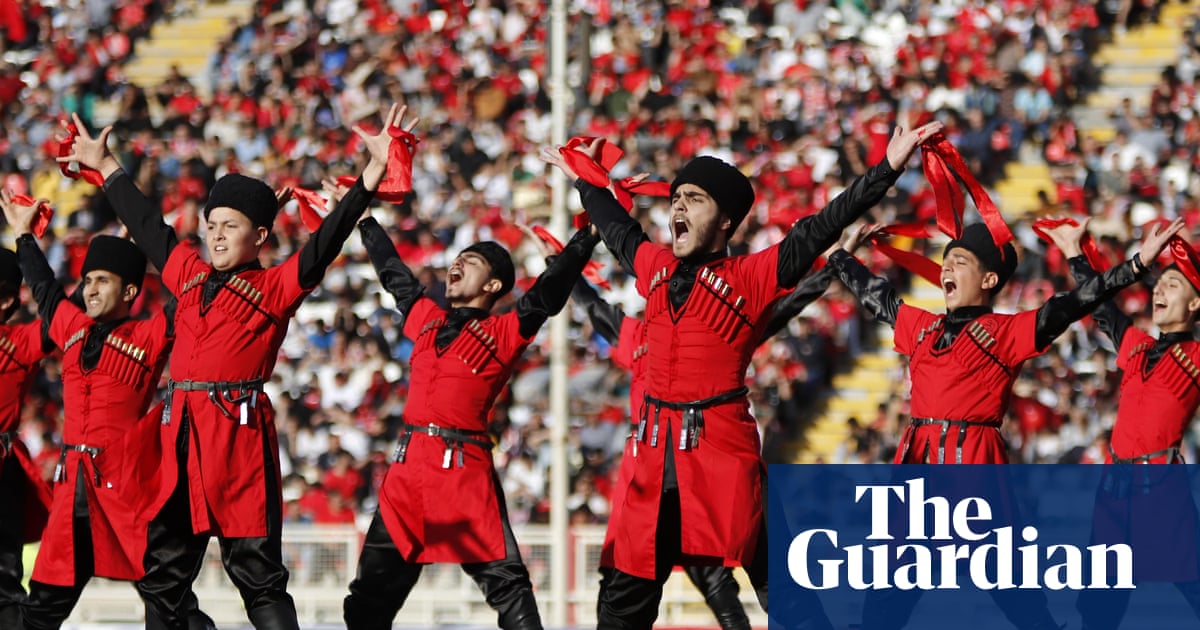The league title was won with games to spare by a coach in his first season, leaving fans in the north-west of the country to wait for the official presentation of the trophy. Jamie Carragher said on Sunday that “Liverpool as a city feels like it is ‘us against the world” but that is nothing when compared to those who follow Tractor SC, a club that brings hope, unity and a voice to millions of Azerbaijani Turks, the largest minority in Iran. Now they have a first Iranian championship to celebrate.
That journey to the very top took 55 years. It started when the state-owned tractor company set up a team for its workers and residents in Tabriz, the biggest city in the Iran’s East Azerbaijan province as a whole, not far from the border with Turkey, Armenia and Azerbaijan. The relationship with the club and Tehran has been mixed ever since, especially as Tractor, after not doing much for quite a while, started to become a force on the pitch as well as a focal point off it.
A people with their own language, culture and history who have long felt discriminated against and marginalised by governments (post- and pre-Islamic revolution in 1979) that have pursued Persia-centric policies in a diverse and ancient nation. Supporting the football club has become a way to push back and assert Azeri pride and identity (songs recall ancient heroes), advocate for more representation in Iran (chants in 2012 demanded a better response from the government after a major earthquake) and, sometimes, simply annoy the powers-that-be.
It is not surprising that there is ire from Tehran when fans chant slogans invoking the names of capitals from other countries. “Tabriz, Baku, Ankara, our path leads elsewhere than the path of the Persians.” Shouting that the “Persian Gulf” should be called the “Arabian Gulf” is also a surefire way to upset many in the capital and elsewhere, as Donald Trump and his administrationwill find out if they try to do so.
The Iranian government, suspicious of large crowds even when they are gathered to support the national team, are wary of Tractor’s pulling power. This season, there has been an average of over 42,000. They are a big draw away, too. On visits to Tehran to take on the twin titans of Persepolis and Esteghlal, thousands come to support them in the cavernous Azadi Stadium.
Persepolis may traditionally be the club of the capital’s working class in contrast to Esteghlal, the establishment’s team, but for Tractor both are part of the ruling regime. These games can be bad-tempered. In 2018, there were 15,000 away fans, swapping ethnic insults with Esteghlal supporters but security forces waded in when the visitors started chanting“death to the dictator”, namely Iran’s supreme leader, Ayatollah Ali Khamenei.
Now Tractor have football-related chants to rile Persepolis and Esteghlal, winners of around two-thirds of all the league titles in Iranian history. On 2 May, a 4-0 victory in Shams Azar clinched the championship with two games to spare. Fans in Tabriz and in other cities in the regiontook to the streets and partied.
It was a long night but then it had been a long time coming. In 2018, one of the richest men in Iran, Mohammad Reza Zonouzi, took over the club. The billionaire brought in John Toshack as coach. It wasn’t a random appointment. As well as taking Swansea City through the divisions in the 1970s and 80s, then going on to manage Real Madrid, the former Liverpool forward had also coached Besiktas in Turkey and led Khazar Lankaran to the Azerbaijan Super Cup in 2013. Soon after, Harry Forrester and Lee Erwin left Rangers and Kilmarnock respectively to join up with the Welshman, as did the former Celtic star and Republic of Ireland international Anthony Stokes.
Big-name Iranians also made the move, such as the former Fulham and Wolfsburg midfielder Ashkan Dejagah as well as Ehsan Hajsafi and Masoud Shojaei. That trio stayed three years but Toshack lasted just three months. Despite the spending – unprecedented in Iranian football, especially with sanctions and inflation restricting financial power – it did not happen for the Welshman with just nine points from the first six games and a Hazfi Cup elimination.
Sign up toFootball Daily
Kick off your evenings with the Guardian's take on the world of football
after newsletter promotion
That dismissal seemed harsh (Sven-Göran Eriksson was supposed to be the replacement) and set the scene for coaches and players to come and go over the following years. The title remained absent but then came Dragan Skocic last summer. The Croat led Iran through qualification for the 2022 World Cup but was fired in July of that year, reinstated days later and then jettisoned in favour of Carlos Queiroz just weeks before the tournament started.
Skocic brought in Iran’s first-choice goalkeeper Alireza Beiranvand as well as Mehdi Torabi, Danial Esmaeilifar and Shoja Khalilzadeh. There was some controversy as the first three were all signed directly from Persepolis and the fourth is a former player of that club (also, Torabi is still remembered for lifting up his shirt in the past to reveal pro-government slogans). While these were not the big names of the last decade – the same is true of the foreign imports – they were solid, experienced players. The Red Wolves reached the top of the league at about a third of the way through the campaign and pretty much stayed there for the duration.
Next is Asia. Iran has just one automatic place in the group stage of AFC Champions League Elite, so it may be that the rest of the country will get behind its only guaranteed representative – but then maybe not. Regardless, Tractor will plough on.
